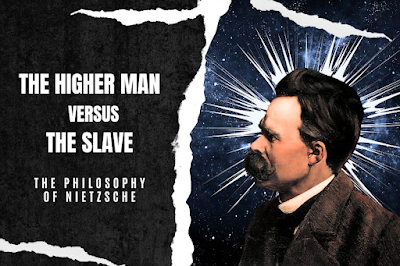“Nobody is more inferior than those who insist on being equal.”
― Friedrich Nietzsche

1. Rejection of the Herd Mentality
- Nietzsche
criticizes the conformity and mediocrity of "herd morality,"
which he associates with conventional societal norms and religious dogmas
(especially Christianity).
- Herd
morality suppresses individuality and fosters mediocrity by valuing
humility, obedience, and equality over ambition, strength, and creativity.
- Higher
men, by contrast, reject these imposed norms and carve their paths,
setting their values and goals.
2. Self-Overcoming
- Central
to Nietzsche’s philosophy is the idea of "Überwindung"
(self-overcoming). Higher men constantly challenge themselves, aiming to
surpass their previous achievements and limitations.
- Life,
for Nietzsche, is a dynamic process of growth through struggle. Higher men
embrace this struggle as a way to refine and elevate themselves.
- They
embrace their instincts and passions but channel them creatively, rather
than repressing or indulging them blindly.
3. Will to Power
- The
"will to power" is the driving force of life, according to
Nietzsche. It represents the desire to assert oneself, to grow, and to
create.
- Higher
men embody the will to power by striving not for domination over others
but for mastery of themselves and their circumstances.
- Their greatness lies in their ability to impose their vision of life upon reality, shaping the world according to their unique perspective.
